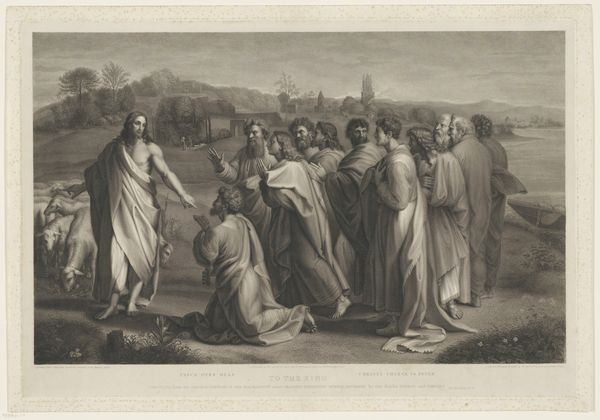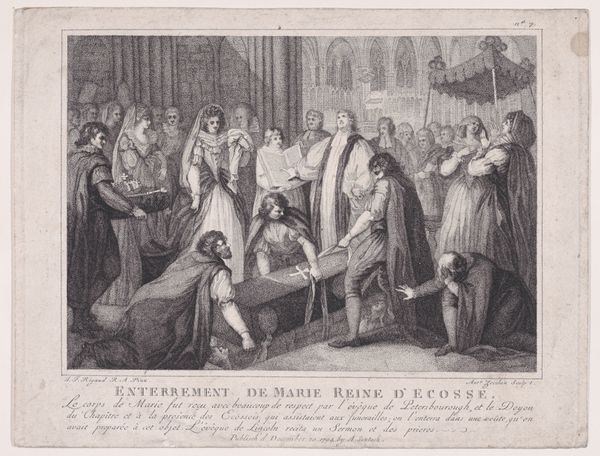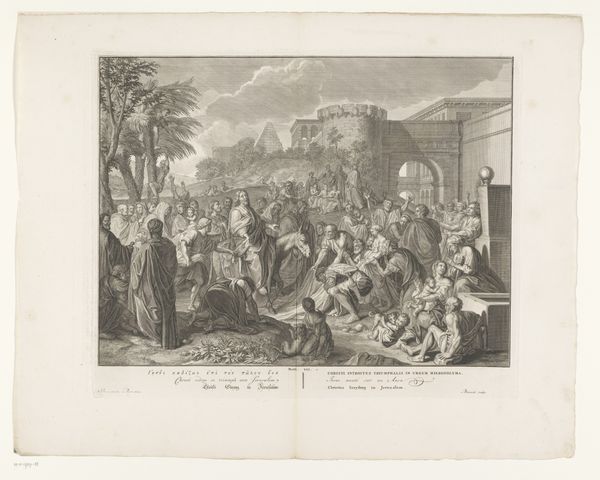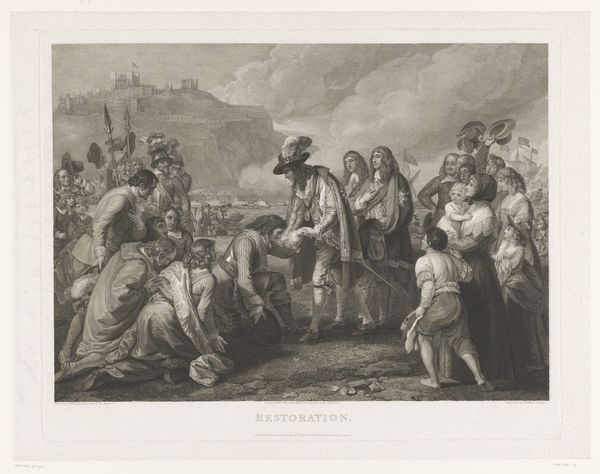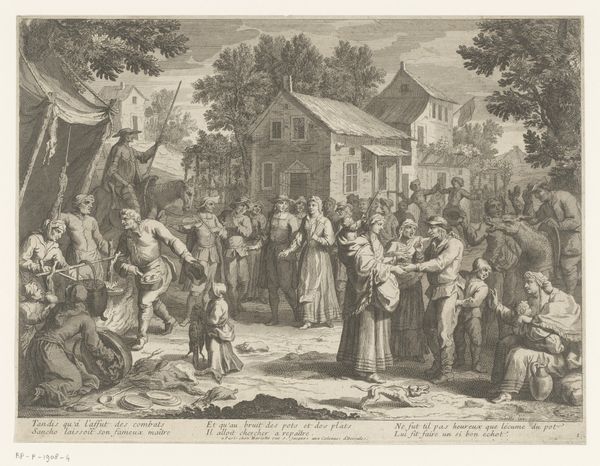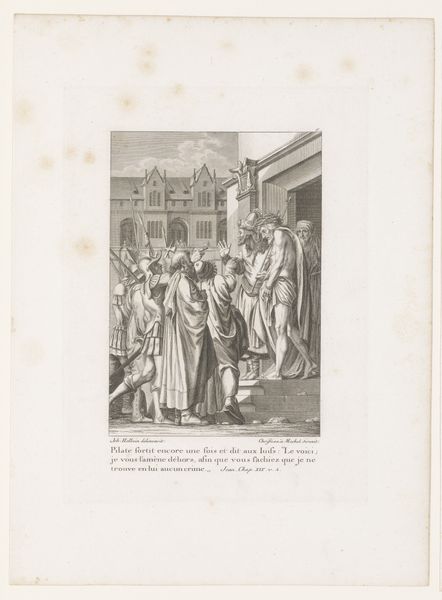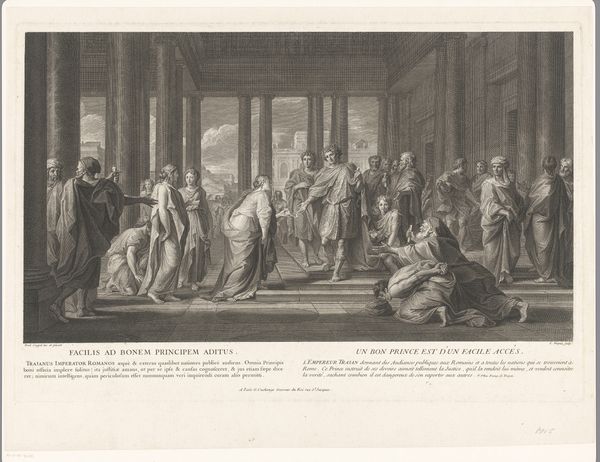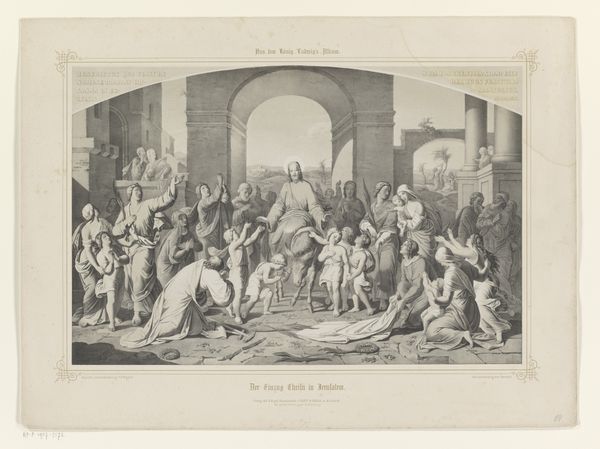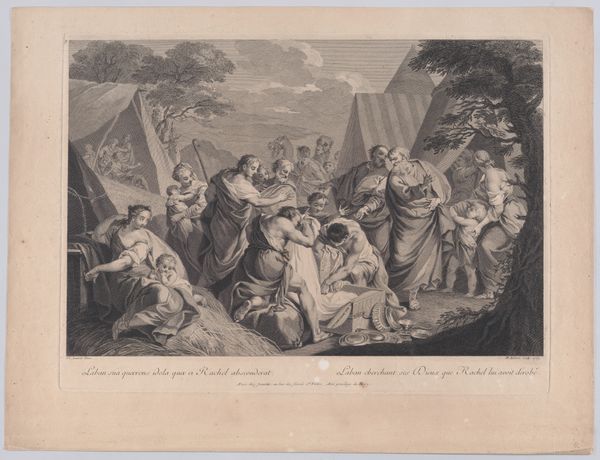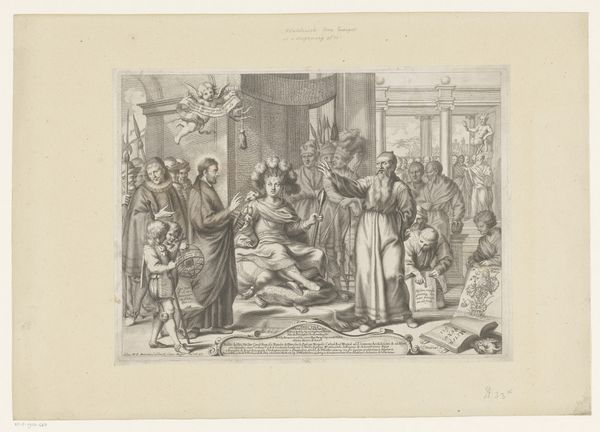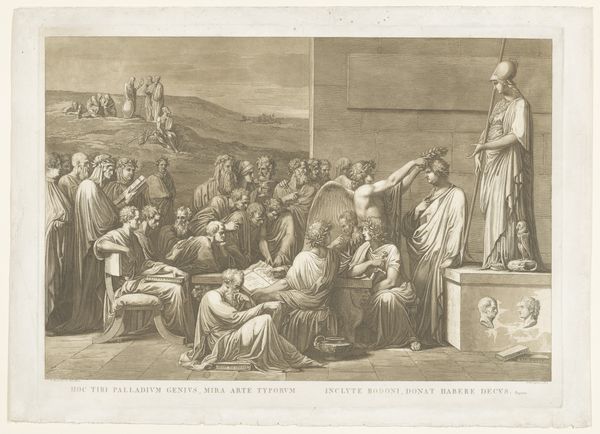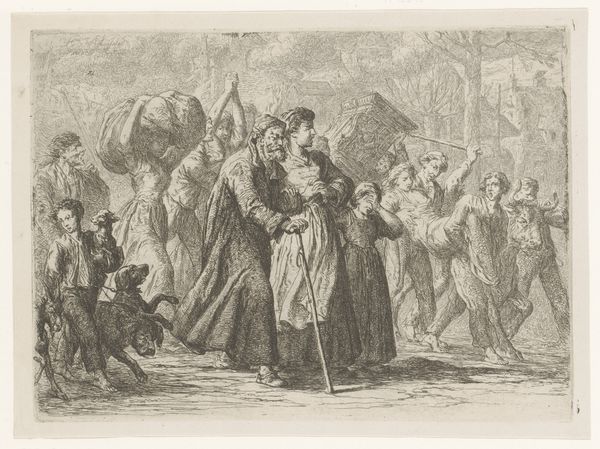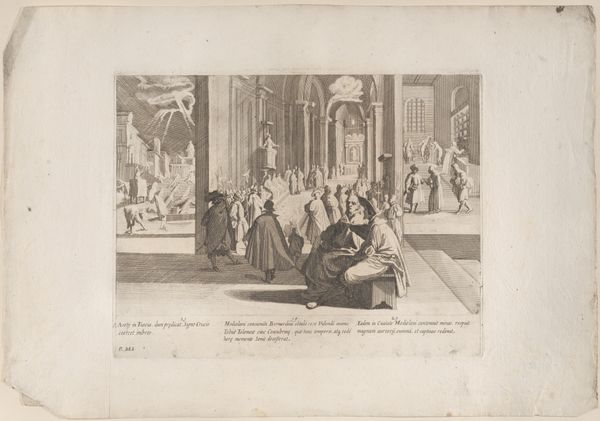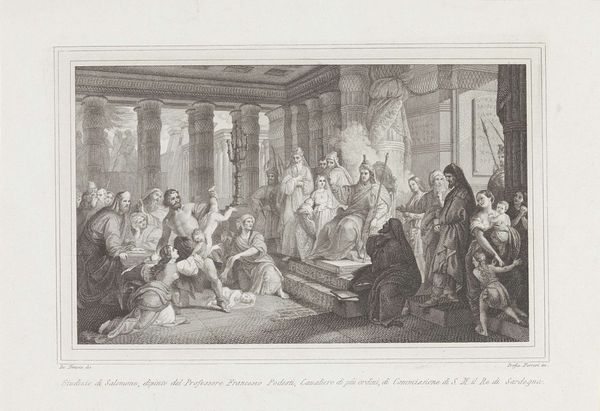
engraving
#
neoclacissism
#
figuration
#
history-painting
#
engraving
Dimensions: height 576 mm, width 690 mm
Copyright: Rijks Museum: Open Domain
Pietro Anderloni created this engraving, "Christus en de overspelige vrouw", or "Christ and the Adulterous Woman" in the 19th century. The setting of the print, with its classical architecture, immediately recalls the religious art of Renaissance Italy, but here the medium of printmaking allows for wider distribution and consumption of the image. In the gospel story, Jesus prevents the stoning of a woman accused of adultery. The image asks us to consider themes of judgment, mercy, and social hypocrisy. We see the woman kneeling, head bowed, in a pose that might suggest shame or supplication. Meanwhile, the crowd surrounding her are portrayed as judgmental. Jesus, however, appears calm, and his outstretched hand signals a challenge to the crowd's moral certainty. Anderloni’s work, in both its subject and medium, implicitly critiques existing institutions of power. To gain a deeper understanding, we can research the social and religious context of 19th-century Europe. The image can be examined through historical accounts, theological interpretations, and studies of gender and power. Ultimately, the interpretation of art is always a product of its social and institutional context.
Comments
No comments
Be the first to comment and join the conversation on the ultimate creative platform.
